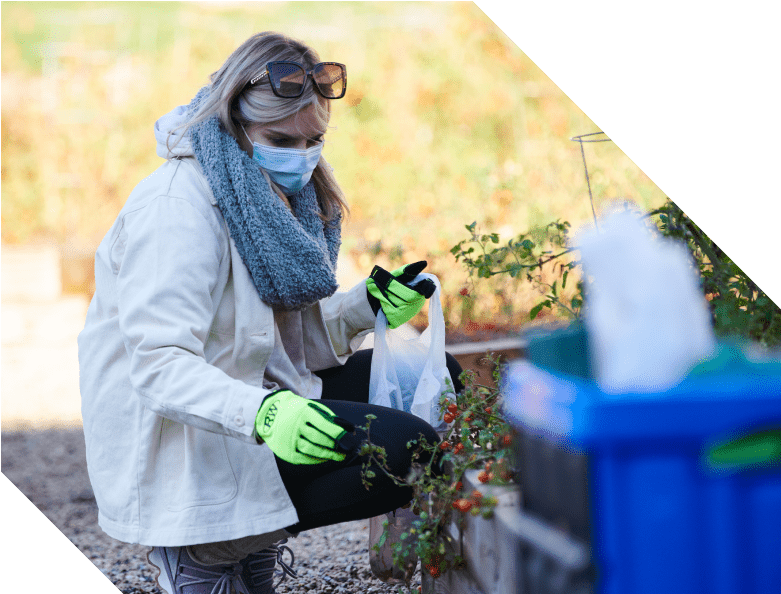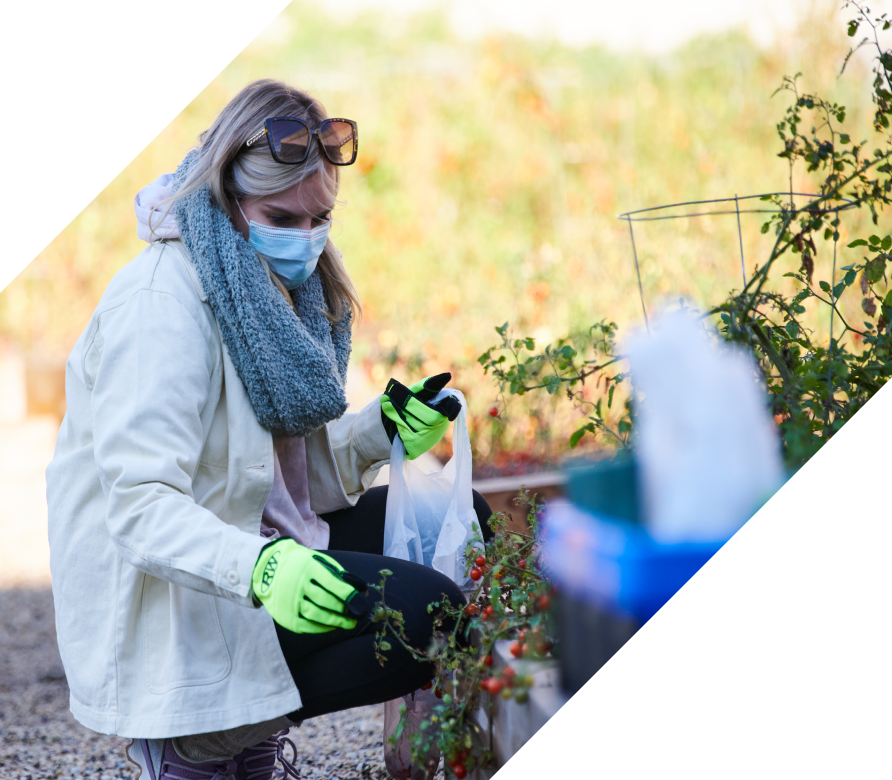
Protecting our future by protecting our planet
The issue of climate change can’t be ignored and addressing it takes big-picture thinking. We’re committed to helping healthcare run more sustainably—implementing practices that are scalable and eco-friendly, while encouraging our partners to do the same by offering solutions that help them reduce waste while saving on cost.
Creating sustainable solutions for our partners
We help health systems throughout their sustainability journey, listening to their challenges and problem-solving, together. We then create sustainable programs that meet our partners’ unique needs. The solutions we develop are designed to reduce waste while lowering costs. Here are our programs at-a-glance:
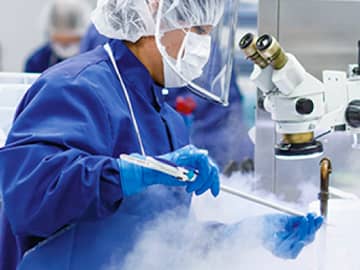
Medline ReNewal
We help our partners reduce waste by reprocessing their medical devices so that they may be used again. In 2020, Medline ReNewal took in 5,417,706 instruments to be reprocessed and diverted 1,018,673 pounds of waste from landfills, an amount equivalent to 36,381,821 water bottles.
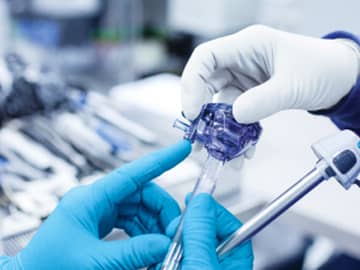
Gloves waste to energy
This program transforms exam gloves into clean, renewable energy. Since the program’s inception in 2018, we have transformed 2,156 pounds of gloves from 23 different partners into clean energy.
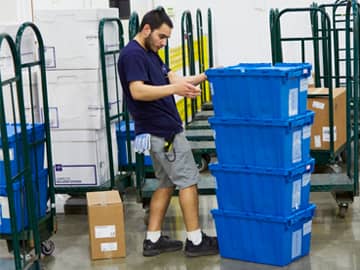
Tote exchange
The tote exchange program delivers products in reusable totes instead of cardboard containers. This program plays a significant role in reducing the amount of corrugated cardboard in our supply chain and is offered to our qualifying partners nationwide.
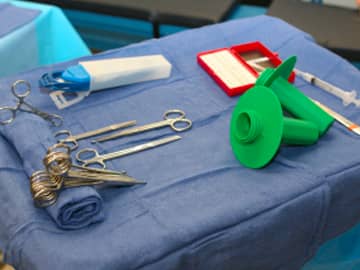
OR towel take-back
Rather than having our customers pay to dispose of used operating room (OR) towels, we facilitate a pick up free of charge. Instead of being sent to the landfill, the towels are repurposed to be used in non-healthcare industries. Since 2018, 68 metric tons of towels have been re-purposed—14.5 of those in 2020.
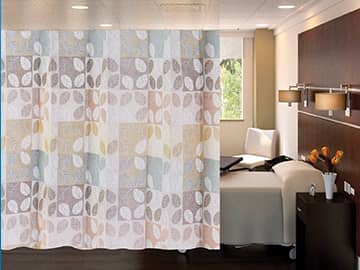
Disposable curtain recycling
As dependence on disposable products surged during the pandemic, so did concern for landfill avoidance. As a countermeasure, we launched a new closed-loop recycling program—recycling used, disposable curtains into new disposable curtains. Our customers collect and ship used curtains in designated collection boxes. Once received, the curtains are sanitized, melted down and repurposed into new curtains.
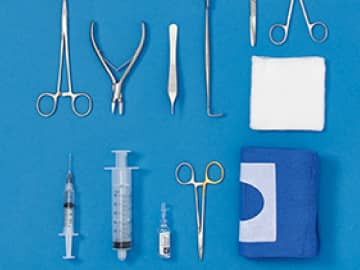
Centurion
Our Centurion recycling program provides customers with an eco-friendly option to recover premium surgical instruments from the waste stream, while reducing regulated medical waste costs. Since 2019 the program has diverted 236,109 pounds of instruments from landfills, an amount equivalent to 8,432,809 water bottles.
Reducing waste throughout our supply chain
Hospitals produce more than 5 million metric tons of waste each year.1 Conserving raw material and energy resources is key to reducing environmental impact. At Medline, we’re making progress by ensuring surplus products are put to good use, responsibly sourcing and producing more green products and innovating sustainable packaging solutions for our partners across the healthcare continuum.
Putting surplus product to good use
We donate our surplus product to clinics in need around the world. In 2020, we diverted 513 metric tons of waste from landfills by providing nonprofit organizations with unused supplies that fill a crucial gap for healthcare facilities in low-resource countries.
Sustainable Packaging Lab innovates and reimagines packaging
In 2020, Medline launched a Sustainable Packaging Lab—a cross-functional team of R&D, sustainability, operations and design experts and engineers. The team works to reimagine the way we see packaging for a more sustainable future. Here are a few of our latest packaging innovations that are reducing waste not just across our own supply chain, but our partners’ as well.
Cold chain shipping
Cold chain packaging ensures products reach their destination at a set temperature, which is more important now than ever. Our previous cold chain packaging underutilized space and generated unnecessary waste. After review by the Sustainable Packaging Lab, previous delivery, shipping and storage methods were scrapped, and a sustainable and efficient design was introduced.
- 100% recycled content—both the liner and outer box
- 100% recyclable
- No styrofoam
Chipboard pallet sheets
The way we store product in our facilities impacts the amount of product we house per branch, as well as our ability to deliver product on time. Our new chipboard pallet sheets serve as a thinner, more compact version of traditional corrugate dividers. The sheets not only save square footage and allow our team to better optimize warehouse space, but they are the right choice for the environment, too.
- Made from 54% post-consumer recycled content
- Savings of 46,000 pounds of paper
- Optimizes storage space
Green products—setting the standard to lighten our environmental footprint
Introduced in 2020, our Green Product Portfolio brings our commitment to sustainable sourcing to life and makes the search for sustainable products simple. To be added to our Green Product Portfolio, products must meet our strict green product standards—informed by state laws and regulations and guided by sustainability best practices, such as Kaiser Permenente’s Environmentally Preferable Purchasing Standards, the Federal Trade Commission’s FTC Green Guides and Practice Greenhealth.
Investing in renewable energy
To preserve Earth’s natural resources, we invest heavily in renewable sources of power. We established our renewable energy portfolio in 2009, when our first geothermal facility was built, and it’s been growing ever since.
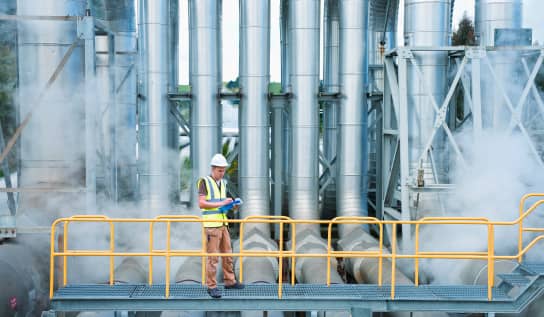
Geothermal
Medline has three geothermal facilities located in Mundelein, Illinois; Arnhem, Netherlands; and Dubuque, Iowa. Geothermal technology heats and cools buildings using the constant temperature below the earth’s surface, which is warmer than the air above it during the winter and cooler in the summer.
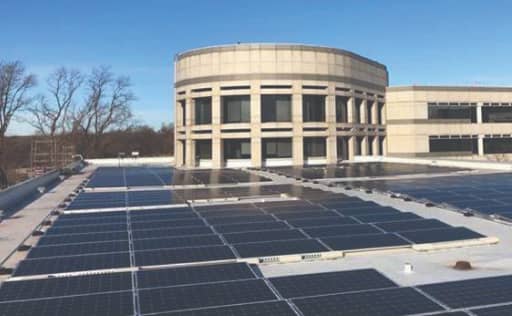
Solar
Since 2016, we’ve invested $12.6 million in solar energy globally. Our portfolio consists of 1.2 million square feet of solar rooftop space that holds over 24,000 solar panels.
The 2,754 newly installed panels on the roof of our 680,000 square-foot headquarters are expected to generate an average of three megawatt hours of clean, renewable energy each day—the equivalent of removing 2.1 metric tons CO2e emissions from our atmosphere daily.
Our solar energy portfolio at a glance
Building with sustainability in mind
We build and operate our facilities in sustainable ways. Today more than 18.8 million square feet (94%) of our distribution space is Leadership in Energy and Environmental Design (LEED) certified and new Medline buildings are constructed to meet LEED certification standards.
We also have nine locations that are certified according to ISO 14001, a set of global environmental standards set by the International Organization for Standardization (ISO). ISO 14001 lays out the necessary criteria for an environmental management system (EMS) and outlines the steps a company or organization should follow to set up an effective EMS.
Conserving energy and other resources is critical to curbing climate change, and an integral part of achieving ISO 14001 certification.
We’re meeting ISO standards by:
- Installing LED lighting in production and warehouse areas
- Identifying and executing alternative means of waste disposal
- Updating our equipment and processes to use less water
- Making our equipment and processes more efficient
New ISO 14001 certification in Slovakia
In 2020, our team in Bánovce, Slovakia passed their ISO 14001: 2015 certification on their first attempt. ISO 14001 is an environmental management system established to identify and minimize impacts while tracking improved green performance over time. Thanks to the efforts of our Environmental Health and Safety and Quality Assurance teams, the British Standards Institution found zero non-compliances.
Recycling by the numbers
Since 2008, we’ve tracked the amount of plastic and corrugate recycled at our distribution centers. Here are our numbers for 2020:
- 162 metric tons of plastic wrap
- 12,864 metric tons of corrugate
Improving fleet fuel economy
EPA SmartWay is a partnership between the Environmental Protection Agency (EPA) and freight industry that provides guidelines and tools for improving fuel efficiency and environmental performance. As an EPA SmartWay partner, we’re reducing our carbon footprint on the road by operating vehicles more fuel efficiently, investing in technology to monitor driving performance and streamlining deliveries and transportation services whenever possible.
Since 2018, we’ve upgraded our trucks to improve fuel efficiency for 8% of our fleet, allowing us to travel 110,362 more miles without increasing transportation emissions.
Being transparent about our progress
We openly share information about our environmental impact so that our partners and communities can see our progress toward becoming a more environmentally responsible company. Along with sharing data, we track our environmental performance over time, and are committed to improving it year after year. In 2019, Medline North America and Medline Europe added more sites and increased square footage space, yet our emissions decreased 4% per square foot of distribution, manufacturing and office space.
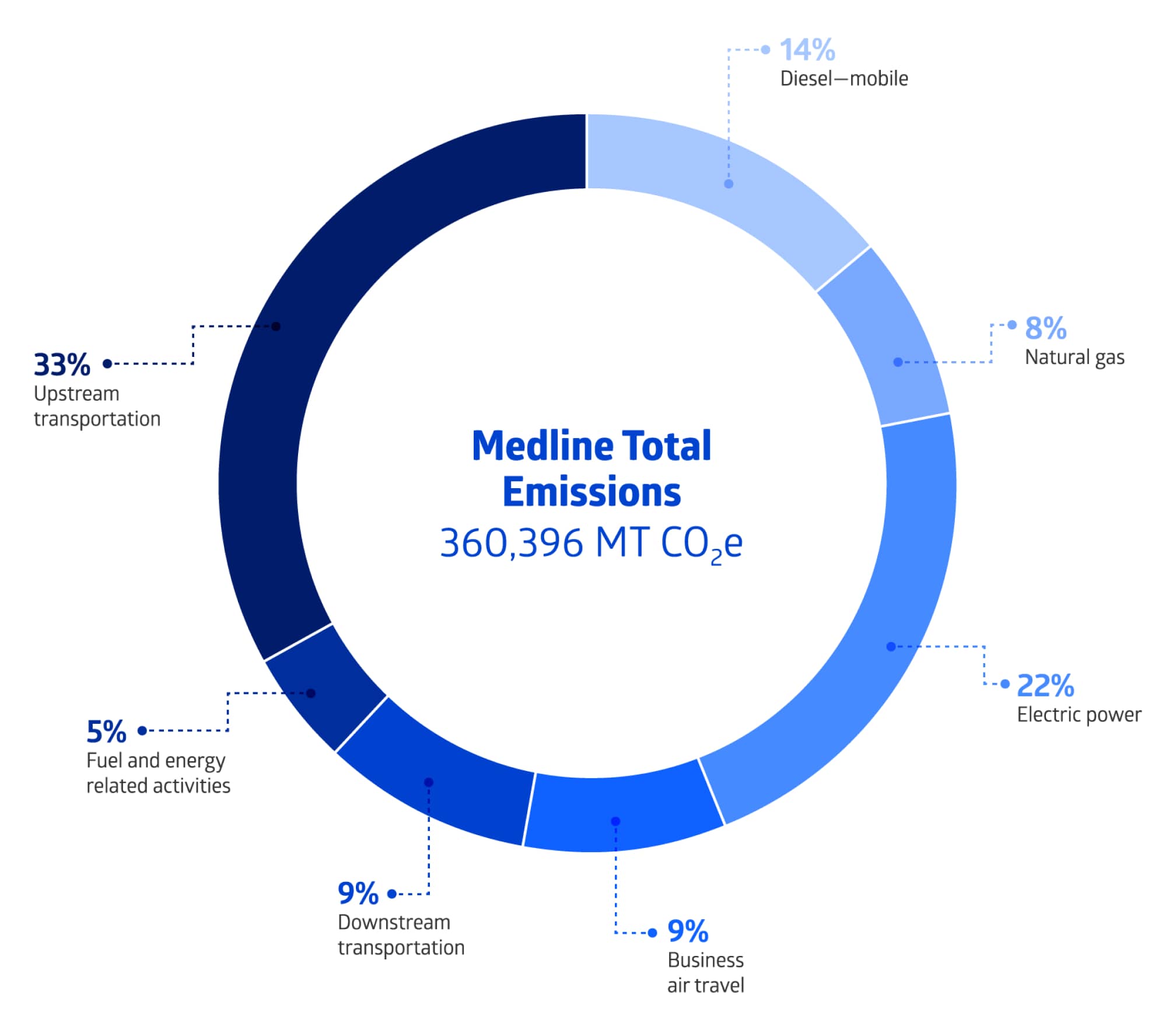
Here’s how we’re sharing and tracking data related to our emissions:
We measure our carbon emissions in North America and Europe through an annual greenhouse gas (GHG) inventory. We use the data we gather to develop strategies to better manage reduce our footprint. Our GHG inventory measures our emissions in North America and Europe within three scopes. The majority of our emissions come from upstream transportation and electric power.
Scope 1: Direct
- Company vehicles
- Company facilities
Scope 2: Indirect
- Purchased electricity
- Steam
- Heating and cooling for own use
Scope 3: Indirect
- Purchased goods and services
- Leased assets
- Business travel
- Transportation and distribution
- Use of solid products
- Waste generated in operations
- Employee commuting
- End-of-life treatment of solid products
- Capital goods
- Investments, franchises
- Fuel and energy-related activities
- Processing of solid products
Medline North America and Europe Combined GHG emissions FY2019*
(measured in metric tons CO2e**)
Scope 1: Direct
79,980
Scope 2: Indirect
79,797
Scope 3: Indirect
200,619
Source: GHG Protocol, 2013 Scope 3 Accounting and reporting standard
*Greenhouse gas emissions data represents the 2019 calendar year.
**CO2e stands for carbon dioxide equivalent and is a standard unit to measure carbon footprint. It is used to compare the emissions from various greenhouse gases based upon their global warming potential.
- https://practicegreenhealth.org/topics/waste/waste-0
